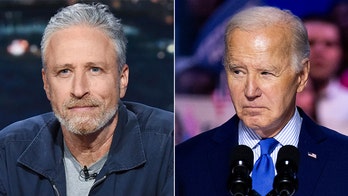Former CBO director Doug Holtz-Eakin critiques Vice President Kamala Harris' spending plan, arguing that her proposed 28% corporate tax rate would harm the economy and hinder business investment.
Vice President Kamala Harris' proposal to raise the corporate tax rate to 28% has drawn criticism from former Congressional Budget Office (CBO) director Doug Holtz-Eakin, who argues that such a move would negatively impact the economy and stifle business investment.
In an interview on Fox News, Holtz-Eakin expressed skepticism about Harris' plan, stating that it "wouldn't be good for investment" and would "hurt our companies." He emphasized the importance of attracting capital and stimulating economic growth, arguing that raising corporate taxes would have the opposite effect.

Harris' Push for 28% Corporate Tax Rate is a Mistake, Says Former CBO Director
Holtz-Eakin's concerns stem from the belief that higher corporate taxes would reduce the amount of capital available for investment, leading to a decrease in productivity and economic growth. He cited examples from other countries where corporate tax rates have been increased, resulting in reduced investment and economic stagnation.
The former CBO director also highlighted the global competition for capital, arguing that the United States needs to maintain a competitive corporate tax rate to attract investment from multinational corporations. He warned that a 28% corporate tax rate would put the United States at a disadvantage compared to other countries with lower tax rates.

Harris' Push for 28% Corporate Tax Rate is a Mistake, Says Former CBO Director
Holtz-Eakin's criticism of Harris' proposal is based on economic theory and historical evidence. Studies have shown that higher corporate taxes can lead to lower investment, reduced productivity, and slower economic growth. Additionally, there are numerous examples of countries that have experienced economic declines after raising corporate tax rates.
Conversely, some economists argue that higher corporate taxes are necessary to generate revenue for government spending on public services and infrastructure. They also contend that corporations can afford to pay higher taxes without significantly reducing investment.

Harris' Push for 28% Corporate Tax Rate is a Mistake, Says Former CBO Director
However, Holtz-Eakin maintains that the benefits of higher corporate taxes do not outweigh the potential costs. He argues that the government can find alternative sources of revenue without resorting to raising corporate taxes, which would harm the economy in the long run.
The debate over Harris' corporate tax proposal is likely to continue as lawmakers consider her spending plan. Holtz-Eakin's criticism raises important concerns that should be carefully considered before making any changes to the corporate tax rate.










